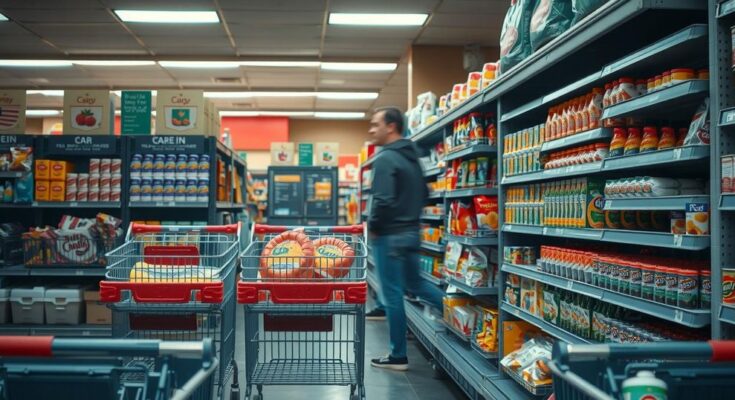South Africa’s plan to increase VAT by 2 percentage points to 17% may dampen consumer spending recovery, according to Shoprite CEO Pieter Engelbrecht. Business leaders express concerns about operational challenges and food affordability. Woolworths CEO Roy Bagattini notes that any potential food tax hikes would likely burden consumers further, threatening consumption. Engagement between the government and retailers is ongoing regarding food prices.
The proposed increase in South Africa’s value-added tax (VAT) by 2 percentage points to 17% could severely hinder a budding recovery in consumer spending, according to Shoprite Holdings Ltd. CEO Pieter Engelbrecht. The announcement is delayed due to internal disagreements within the coalition government over the National Treasury’s plans. Engelbrecht emphasizes that consumers are already struggling and cannot afford additional tax burdens.
Local businesses have been compelled to invest in their own infrastructure, such as power and water supplies, due to persistent service interruptions. Engelbrecht expresses concern that further increases to food taxes may not be sustainable for businesses, as they are already facing high operational costs and supply chain challenges.
Engelbrecht stated, “The two things that really worry me are the incredibly high cost of food and high unemployment.” He noted that there are few businesses in South Africa reporting job creation, which exacerbates the challenges faced by consumers.
Despite an initial recovery in consumer spending, triggered by lower inflation and interest rates, the threat of increased food taxes looms. Woolworths Holdings Ltd. CEO Roy Bagattini indicated that any rise in food taxes would ultimately be passed on to consumers, which could adversely impact overall consumption.
The South African government is in discussions with businesses regarding food prices and tax increments. Shoprite is actively exploring strategies to mitigate food inflation through advanced technologies and collaborative purchasing efforts. Engelbrecht remarked that while there are positive indicators, the risks of inflation persist, stressing that many South Africans are struggling with their purchasing power.
In summary, the proposed VAT increase poses a significant risk to the recovering consumer spending in South Africa, as articulated by industry leaders. The ongoing challenges faced by local businesses and consumers necessitate careful consideration of the government’s fiscal policies. Sustained discussions between the government and retailers are essential to navigate the complexities of food pricing and tax increases. Engelbrecht’s insights underline the critical nature of food affordability and consumer welfare in the current economic landscape.
Original Source: www.livemint.com




